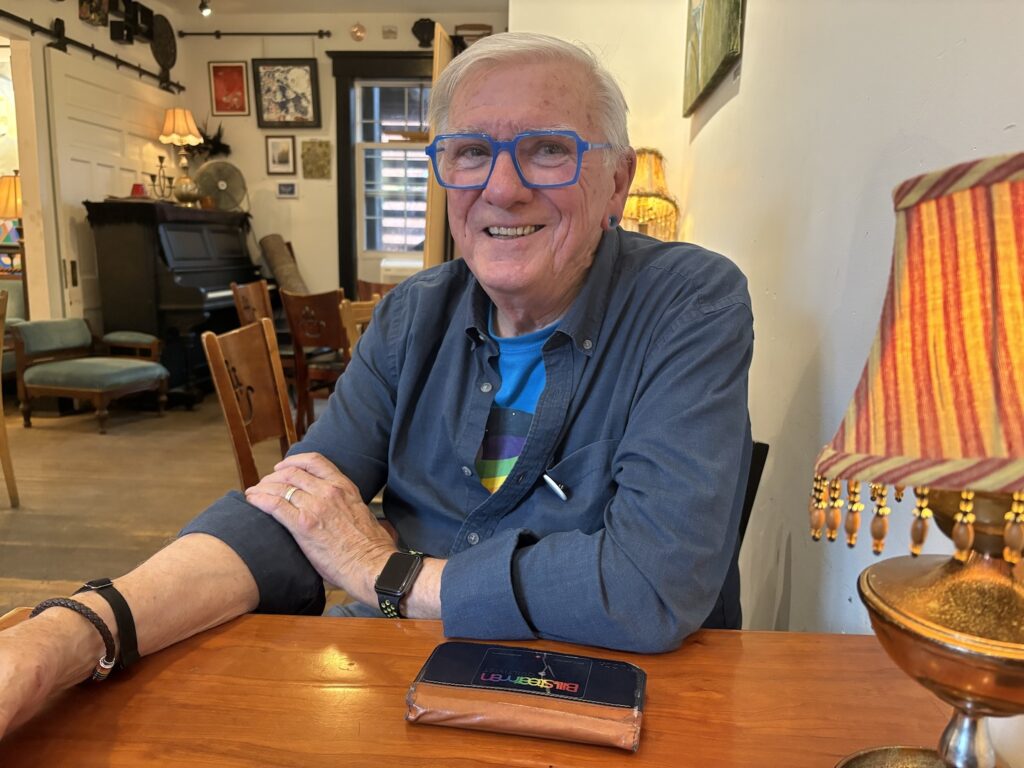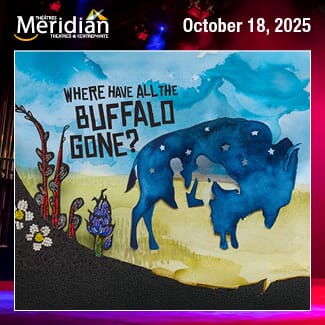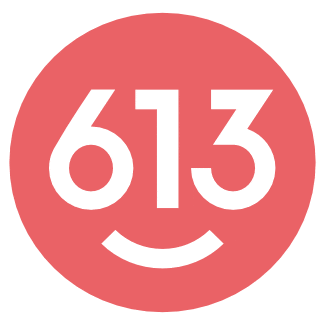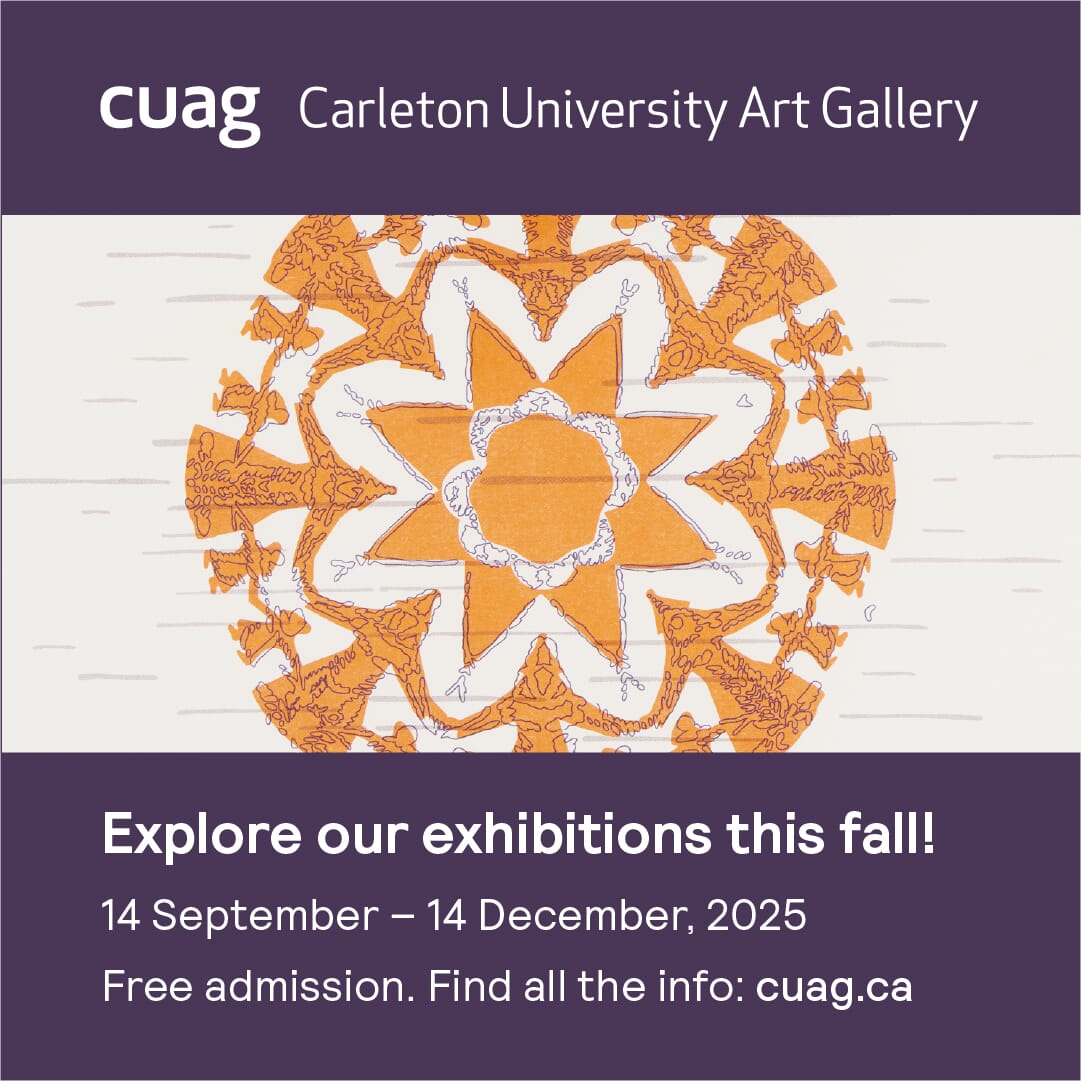Bill Stearman is travelling across Canada to interview Queer Elders. He was recently in Ottawa to share details about his ongoing project with the Ottawa Modern Quilt Guild.
Quilts typically convey notions of beauty, warmth, and comfort. But for Bill Stearman, a quiltivist, the fabric and stitching are part of a deeper dialogue.
“I didn’t make these quilts to be pretty,” says Stearman, who brought 19 of his quilts (spanning a decade or so) to Ottawa.
“The purpose of each quilt is to say something that needs to be said.”
Meeting with Apt613 before his evening presentation to the Ottawa Modern Quilt Guild, he explains how his quilts address sensitive subject matter such as genocide, rape, and queer rights — topics Stearman knows can be difficult.

Bill Stearman at Art House Cafe in Ottawa, Sept. 22, 2025. Photo by Kenneth Ingram.
As part of his Queer Seniors Project, he intends to interview 55 to 60 people across Canada during a period of 18 months.
“These stories, while these people are still alive, need to be told,” he says.
“I live in fear that all we have been through will be forgotten,” Stearman continues, noting he came out as gay at the age of 47.
The interviews, each roughly two hours, will inspire 12 quilts in total that he co-produces with his dear friend and colleague, Deanna Gaudaur.
Eleven of the new quilts will highlight Supreme Court decisions and other legislative acts of Parliament that advanced 2SLGBTQ+ rights while the twelfth quilt, in comparison, will represent the 1980s.
“No [legal] advancements were made in that decade,” he says, “but many people, and especially in the queer community, helped each other. Those stories need to be told, too.”
So far, he’s interviewed 45 people and will focus on what he feels are missing and underrepresented stories in the project such as people with refugee status, immigrants, francophones, those who have undergone conversion therapy and people who identify as transgender. As one example, Stearman says he recently interviewed an 83-year-old woman who transitioned about two years ago.
Stearman began quilting about 11 years ago and says it initially began as a way to deal with pain. At the time, he was stricken with cellulitis and says painkillers were often not sufficient.
A variety of challenges form the tapestry of his own life. You can read more about those details on his webpage or attend a presentation as he speaks candidly while visiting guilds across the country.
At the Tony Graham Recreation Complex in Kanata, Stearman shared his project with about 50 members of the Ottawa Modern Quilt Guild (OMQG). The presentation, for some, was a long wait; originally scheduled last April yet postponed due to the federal election (the facility was used for voting stations).
“His work is unique and necessary,” says Kristin Fearon, President of the OMQG.
Noting quiltivism isn’t new, she offers a few powerful examples such as Virginia (Ginny) Robinson, a U.S. schoolteacher who created “What Will We Use as Weapons: A List of School Supplies” and “Comfort Quilt for a Lockdown Drill” by Alexis Deise.
“It’s about stitching ideas and emotions that spark conversations,” she explains. “And [the quilts] are not confined to history. They can also give a sense of where we want to go.”
Interviewed by phone a few days after Stearman’s visit to the OMQG, Fearon says his presentation resonated with attendees.
“There were a lot of people impacted by his presentation including [details about] Canada’s own history, gay rights, and human rights,” she says.
Stearman, who estimates his project will cost about $130,000 in total, received $25K in funding from the LGBT Purge Fund, $19 thousand from the Ontario Arts Council, and other sources of support including monetary donations and supplies.
“He is offering talks at no charge to the guilds,” Fearon notes. “It is very generous of him.”
The project will culminate as a show in his home town, aimed for July 2026, at the Picton Armoury.
Perhaps most illuminating about Stearman, 75, is the relatively new tattoo of a semicolon he has on his left wrist.
“A semicolon represents a sentence that could end,” he explains, “but it continues — and often in a different direction.”
Stearman knows a lot of work is ahead but he feels ready. “75 used to be old,” he says. “And look what I get to do now. All of this is a bonus.”
The Queer Seniors Project continues on its Canadian tour until July 2026. The next stop is in Kingston on Oct. 2, and then Calgary. For more information check out his website.









